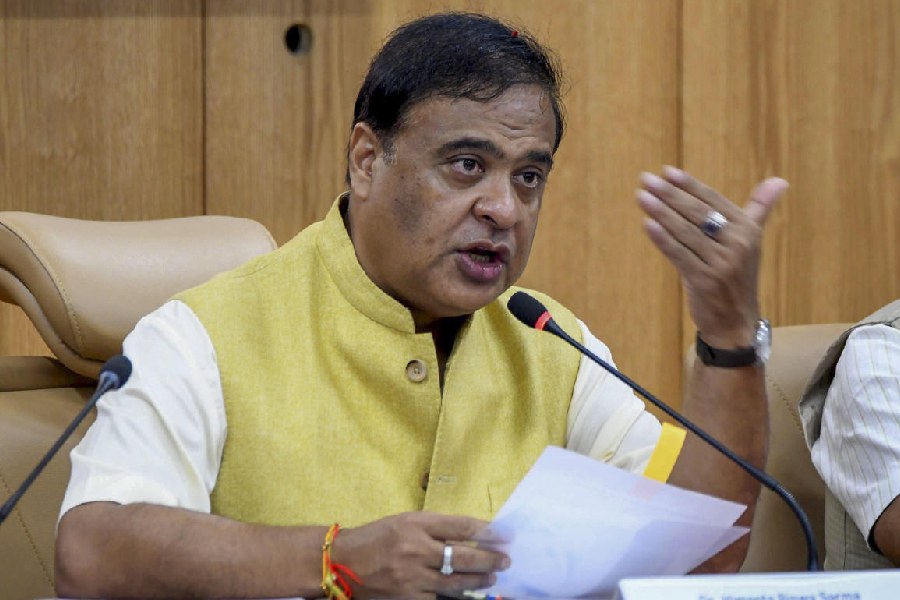|
|
Everyone has a story about Rajmata Gayatri Devi of Jaipur. Mine is quite mundane, but revealing. As the night wore on at a private party at the Hindustan International Hotel, my companion became more and more agitated because Devi, as British newspaper obituaries called the Rajmata, had sent out for a taxi three times but no taxi could be found. It was intolerable that the rich and glamorous queen-mother should be stranded without transport. Would I lend my car? Please! It would only drop her in nearby Bhowanipore where she was staying.
I agreed reluctantly and watched Gayatri Devi, a Bengali woman and a European man climb into my tinny little Standard Herald. Her Highness had no idea whose car it was and didn’t care. Off they went as the party wound down, the band packed up, the waiters stopped serving champagne and the guests said their goodbyes. It was the small hours of the morning when my car returned. Lal Bahadur, my self-effacing Nepalese driver, explained they had ordered him to drive to the Grand Hotel where, obviously, the party continued for some time while he waited in Chowringhee. (The Grand had not yet turned sideways to create the present courtyard entrance and parking lot.) The sahib was presumably staying at the Grand for the two women had then gone to Bhowanipore.
That was not the end of the matter. One of the memsahibs — I recognized Gayatri Devi from his description — had lost her scarf. It was green wool. They had sent Lal Bahadur back to the Grand but it was not there. It had to be at the Hindustan International. He was to find the scarf and take it back. To hell with her, I muttered, and went home.
Let me add quickly that others nurse very different memories. Lord Palumbo told me long ago in London that he had spent his honeymoon in Jaipur as guests of “Jai and Ayesha”, as intimates called the maharajah and the maharani. Teachers and pupils at the Maharani Gayatri Devi School that she founded in 1944 spoke admiringly of her commitment to all aspects of female emancipation. She must have been the only maharani to be a qualified secretary (from the London School of Secretaries) who could take down the radio news in shorthand.
Without great strength of character, she could not have vanquished family opposition to become the third wife of a much older man. The action recalled her own mother’s similar determination in breaking off her arranged nuptials with the wealthy and powerful Maharajah of Gwalior to wed the inconsequential Jit Narayan, second prince of tiny Cooch Behar in remote Bengal. I grew up on stories of how the Maharani of Baroda “paced up and down like a caged tigress” behind a screen, ordering my great-grandfather, the dewan, to prevent an impossible marriage. Perhaps Indira Maharani, as she was called, though the fashionable set knew her as “Ma” or “Ma Cooch Behar”, eventually came to regret it was not prevented. Madhavrao Scindia of Gwalior said that in old age, she would tell him, “I would have been your grandmother!” Across the fence, my grand-aunt never forgot that Jit Narayan had wooed and won her, but his mother, Sunity Devi, Keshub Chunder Sen’s daughter, disliked the match and took him off to England where he fell for the Baroda princess.
These linkages drew Gayatri Devi into Calcutta society. So did polo. Seeing me at a World Wildlife Fund reception in Delhi for Prince Philip, she exclaimed, “You’ve left Calcutta! The polo’s on!” Her casual friendliness towards Philip explained that she did not regard him as a match for the polo season. Watching her drink, dance, smoke, ride and gamble, it was easy to dismiss her as just another attractive international socialite. But she would not have made it to the Guinness Book of Records with the world’s highest ever electoral majority — 192,962 votes out of the 246,516 cast — if voters had not detected in her some sterling quality beyond royal allure, charm and vivacity.
Her politics were also consistent. Her refusal to be the Trinamul Congress candidate from Cooch Behar in 1999 was not her first rebuff to politicians who sought to exploit her influence and eminence. Earlier, she had repeatedly rejected advantageous offers to join the Congress Party. I asked her in 1977 why she was not a member of Morarji Desai’s government and she turned her surprised gaze on me to say, “But I am not a member of the Janata Party!” I did not know until then that she had objected to the Swatantra Party’s merger with the old Jana Sangh and was probably one of the few — if not the only — Swatantra politician to remain true to the fading colours of C. Rajagopalachari’s party.
Behind that decision may have lain a greater honesty of which I have no independent corroboration. But at the height of his wrangling with his mother, Madhavrao Scindia told me that both Rajmata Vijay Raje Scindia and Gayatri Devi had promised not to return to politics before Indira Gandhi released them from the notorious Tihar Jail during the Emergency. According to Scindia, while Gayatri Devi honoured the pledge, his mother reneged on it. Disrespect on that count compounded differences over party affiliation, property and Madhavrao’s loyalty to his father. Whatever else she might have been accused of, no allegation of political opportunism shadowed Gayatri Devi’s reputation.
Yet, what will this beautiful and talented woman be remembered for? That Vogue included her among the “world’s ten most beautiful women”? That Annigoni painted her? That she was friendly with Queen Elizabeth? Her brother, Bhaiya of Cooch Behar, a fine horseman and sports commentator, became famous as the playboy of the Western world. I remember him in the Blue Fox restaurant’s small bar playing a silly game at guessing the serial numbers on hundred-rupee notes with some white hangers-on. Needless to say, he supplied the notes. His sister’s gifts deserved more. That they never reached fruition was because she, too, was a captive in the peculiar gilded cage that the British created for the princes. The aristocratic Nepalese politician, Pasupati Shumshere Jung Bahadur Rana, whose wife is a princess of Gwalior and whose daughter might have become queen of Nepal, thinks vast wealth without real power was the undoing of the princes. It tempted them to make the pursuit of pleasure their only purpose in life to the exclusion of any sense of responsibility.
Britain’s Princess Margaret provided a good example of sybaritic selfishness. Her neighbours in the West Indies island where she had a home complained of being ordered to send over lobsters for free for dinner parties to which they were not invited. The Hindustan International incident may not have been unique. Reportedly, when the paperback edition of A Princess Remembers was launched in London, Gayatri Devi asked the publisher to lend her a chauffeured car for a morning’s shopping. She drove into Surrey and bought a large house. Another story has it that she would invite VIPs staying at the Rambagh Palace hotel to drink champagne with her at her house. If they did not please her, she sent them a bill.
The last time I saw her was in London. She was being trundled in a wheelchair across the courtyard of the British Museum and insisted we had never met. The vehemence of her denial would have been amusing if it did not also confirm the eccentricity that marked the princely order. The lasting criticism is not that it was undemocratic, oppressive, debauched and both extravagant and parsimonious, but that it made a cult of triviality. Rajmata Gayatri Devi of Jaipur had the intelligence and the ability to rise above that norm.











